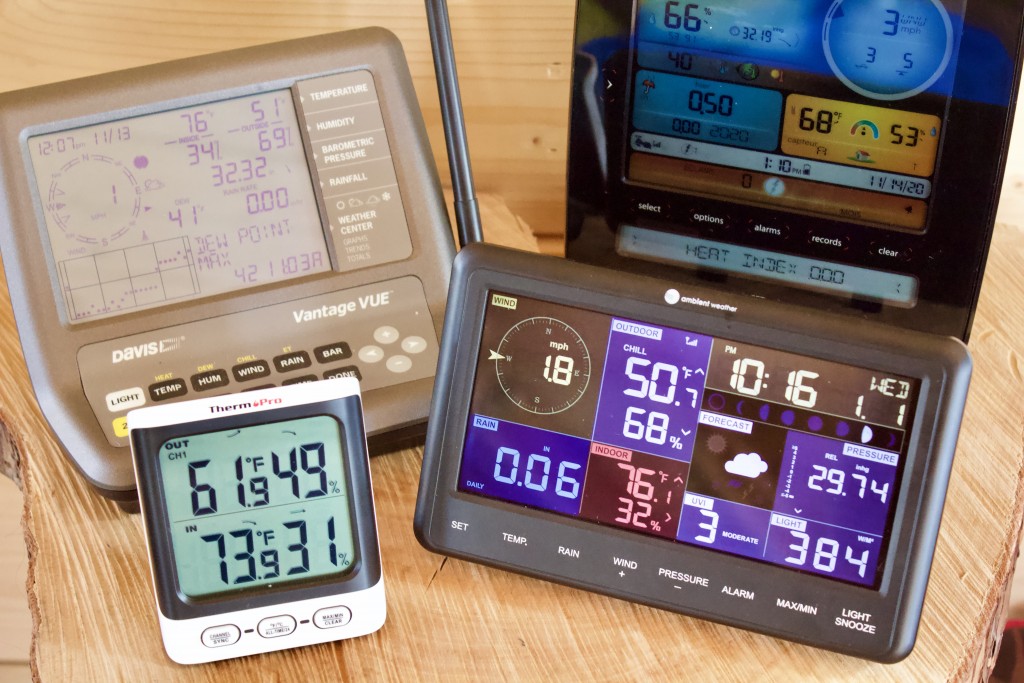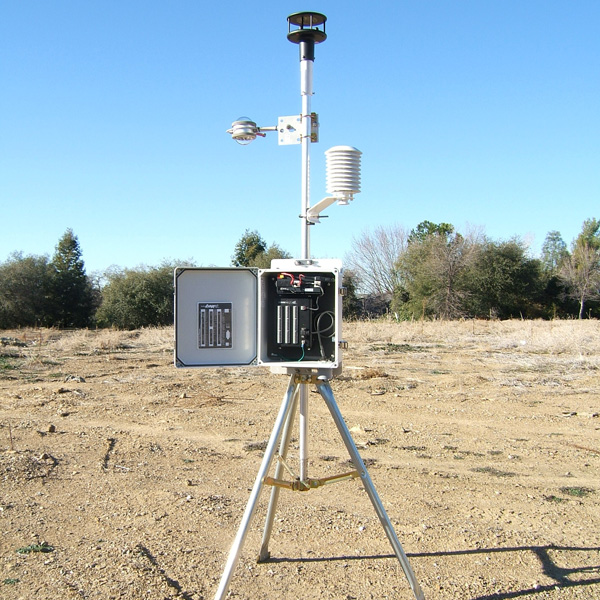The Ultimate Purchaser's Guide to Weather Stations: What You Need to Know
Wiki Article
Exploring the Different Kinds of Specialist Weather Stations for Accurate Information Collection
When it comes to picking the ideal weather condition station for data collection, the market supplies a variety of options customized to various requirements and settings. Allow's check out the nuances of these professional climate stations to realize their one-of-a-kind performances and identify the best fit for details information collection needs.Digital Climate Stations
In the world of meteorological instrumentation, digital climate terminals stand out as sophisticated devices for accurate information collection and analysis. These advanced terminals are geared up with sensors that catch a large range of weather parameters such as temperature level, humidity, barometric stress, wind speed, and instructions. The data accumulated by digital climate stations is transferred wirelessly to a central console or a computer system for real-time monitoring and evaluation.One of the crucial advantages of digital climate stations is their ability to give high-resolution data with precision and reliability. This level of accuracy is vital for various applications, consisting of farming, aviation, emergency, and research study action. Digital weather stations typically come with software program that permits customers to envision the data in different formats like charts and graphs, helping with easier interpretation and decision-making.
Wireless Weather Stations
Building on the abilities of digital weather stations, wireless weather stations offer enhanced ease and adaptability in information transmission and surveillance. By making use of cordless modern technology, these weather condition terminals get rid of the need for troublesome wired connections, permitting simple installation in various locations. The cordless attribute allows real-time data monitoring from remote areas, providing meteorologists and climate enthusiasts with instantaneous accessibility to crucial info.Wireless weather stations commonly are composed of sensors that accumulate data on temperature, moisture, barometric pressure, wind rate, and direction. These sensors wirelessly transfer the data to a main console or receiver, where it is processed and shown for analysis. Some progressed wireless climate stations can even connect to the net, enabling customers to access their weather condition information remotely using mobile phones or computer systems.

Prosumer Weather Stations
What differentiates Prosumer Weather condition Stations from conventional consumer-grade climate terminals? Prosumer Weather Stations bridge the gap between professional-grade and consumer-grade tools, offering advanced functions and greater accuracy than common home weather condition terminals. These terminals are made for climate enthusiasts, amateur meteorologists, and local business that need more exact investigate this site data than what customer versions can give.Prosumer Weather condition Stations commonly consist of a broader series of sensing units to determine extra meteorological specifications such as UV index, leaf wetness, and soil moisture. They also tend to have a greater degree of longevity and integrity, making them ideal for lasting outside use in different environmental conditions.


Industrial Climate Stations
Industrial Climate Stations, also called atmospheric tracking systems, are specialized tools designed for precise and robust climate data collection in industrial setups. These terminals are tailored to satisfy the one-of-a-kind needs of industrial operations where exact climate information is vital for safety and security, efficiency, and decision-making processes.Industrial weather terminals are outfitted with advanced sensing units that can determine a wide variety of atmospheric criteria such as temperature, humidity, wind speed and instructions, barometric stress, and rainfall (Weather Stations). These terminals are often ruggedly built to stand up to extreme ecological problems commonly found in commercial environments
One key feature of industrial weather stations is their ability to provide real-time data monitoring and evaluation. This enables commercial facilities to expect weather-related threats, maximize procedures based upon weather condition conditions, and guarantee the security of personnel and equipment. Additionally, commercial weather condition stations can be integrated into existing commercial control systems for seamless data monitoring and automation.
Mobile Weather Condition Stations
As opposed to stationary commercial climate terminals, portable weather terminals use adaptability and flexibility for on-the-go information collection in various environmental setups. These small units are made to be quickly delivered to different locations, making them excellent for area research, emergency situation reaction scenarios, farming, construction websites, and outside occasions.Portable weather terminals normally include sensing units for measuring specifications such as temperature, moisture, barometric pressure, wind rate, and wind direction. Some progressed models might also include additional sensing units for keeping an eye on rains, solar radiation, and UV levels. In spite of their small size, mobile weather terminals are capable of supplying reputable and exact data equivalent to that of larger, taken care of stations.
One of the vital advantages of mobile weather stations is their quick implementation and simplicity of arrangement. On the whole, mobile weather stations are important tools for experts requiring portable, accurate, and timely weather information in diverse settings.
Conclusion
In verdict, expert weather terminals come see page in numerous types such as electronic, cordless, prosumer, industrial, and mobile. By comprehending the differences in between these types of climate terminals, individuals can make enlightened decisions to guarantee they get the most precise and trusted climate information for their purposes. Weather condition))))Building on the capabilities of electronic weather terminals, wireless weather condition terminals use enhanced Our site comfort and flexibility in information transmission and monitoring. Some advanced cordless weather stations can also connect to the net, allowing individuals to access their weather data from another location through computers or smart devices.
Prosumer Weather Stations bridge the gap in between professional-grade and consumer-grade equipment, providing even more advanced functions and greater precision than common home climate terminals. Weather Stations. In general, mobile weather condition terminals are indispensable devices for specialists requiring portable, precise, and prompt climate information in diverse setups
By recognizing the distinctions between these types of weather condition stations, people can make enlightened choices to ensure they get the most accurate and trusted weather condition information for their objectives.
Report this wiki page